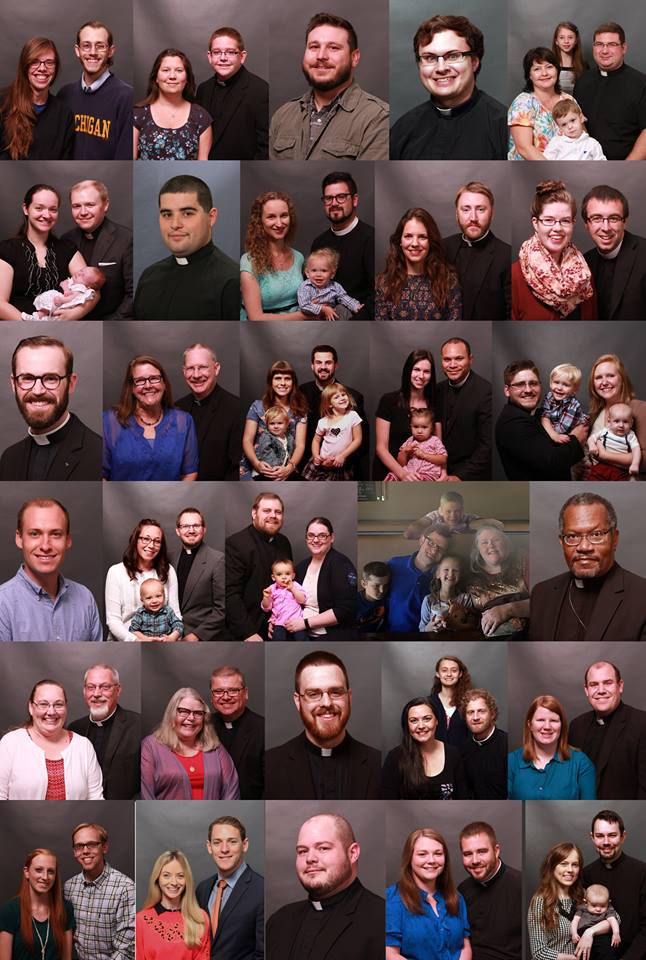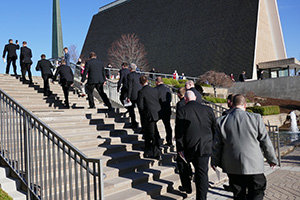 “And Jesus went throughout all the cities and villages, teaching in their synagogues and proclaiming the gospel of the kingdom and healing every disease and every affliction. When he saw the crowds, he had compassion for them, because they were harassed and helpless, like sheep without a shepherd. Then he said to his disciples, ‘The harvest is plentiful, but the laborers are few; therefore pray earnestly to the Lord of the harvest to send out laborers into his harvest’” (Matt. 9:35-38).
“And Jesus went throughout all the cities and villages, teaching in their synagogues and proclaiming the gospel of the kingdom and healing every disease and every affliction. When he saw the crowds, he had compassion for them, because they were harassed and helpless, like sheep without a shepherd. Then he said to his disciples, ‘The harvest is plentiful, but the laborers are few; therefore pray earnestly to the Lord of the harvest to send out laborers into his harvest’” (Matt. 9:35-38).
Thanks be to God for His great goodness and mercy; on April 24 and April 25, students at Concordia Theological Seminary (CTSFW), Fort Wayne, learned where they would serve in their near futures, as vicars, deaconess interns and pastors. The Assignment and Call Services culminated in the announcement of each student’s placement, in cities and churches across the United States. To see where the Lord of the harvest is sending His laborers, go to callday.ctsfw.edu/map.
“Placement is a process where we see the entire Church come together,” said the Rev. Dr. Jeffrey H. Pulse, director of Certification and Placement, addressing the candidates during last night’s Call Service. “Placement directors and seminaries, congregations and call committees, circuit visitors and pastors, district presidents and their staff, the Synod and the Council of Presidents—they all come together as Church to accomplish this very important task for the kingdom of God. Because of the work of the Holy Spirit and our desire to preserve the sanctity of the call, the outcome truly is for the benefit of God’s Church.”
For students headed out on vicarage or diakonal internship, this assignment marks another year of learning, bringing them ever closer to their future vocation. For those about to become pastors, these congregations are where they will be installed and ordained into the Office of the Holy Ministry. To watch either service, print off the lists of assignments and placements, or see who’s coming to your district, go to callday.ctsfw.edu.
Remember, as well, the many congregations that still cry out for a shepherd, whose calls go unfilled this year. Though together CTSFW and her sister seminary, Concordia Seminary, St. Louis, are placing 98 men (79 through the Master of Divinity Program and the rest through other routes), the laborers are ever few; that number is still 29 short of the 127 applications for candidates sent in by congregations this year. Pray earnestly for the men and women considering a future in church work, and encourage those who may not have yet recognized their own gifts for ministry and service. For more information about the path towards becoming a pastor or deaconess, go to www.ctsfw.edu/Admission or call 800.481.2155.
And finally, following on the heels of the Assignment and Call Services this week, the faculty of CTSFW and the Council of Presidents (COP) held a joint meeting this morning in Luther Hall. Made up of the President, vice-presidents and district presidents of the Synod, the 42-member COP meets four times a year to discuss doctrine, the administration of the Synod, and to edify and support one another. It is always encouraging to see the Body of Christ come together as her members, in their different roles, work to support one another in their particular tasks.
This meeting covered such topics as recruitment, parish administration and leadership, and the knowledge, skills and attitudes that a competent candidate develops in the classroom and through fieldwork, and that he then carries to his calling congregation. Here members of the council and faculty share the insights they have gained through their different perspectives.
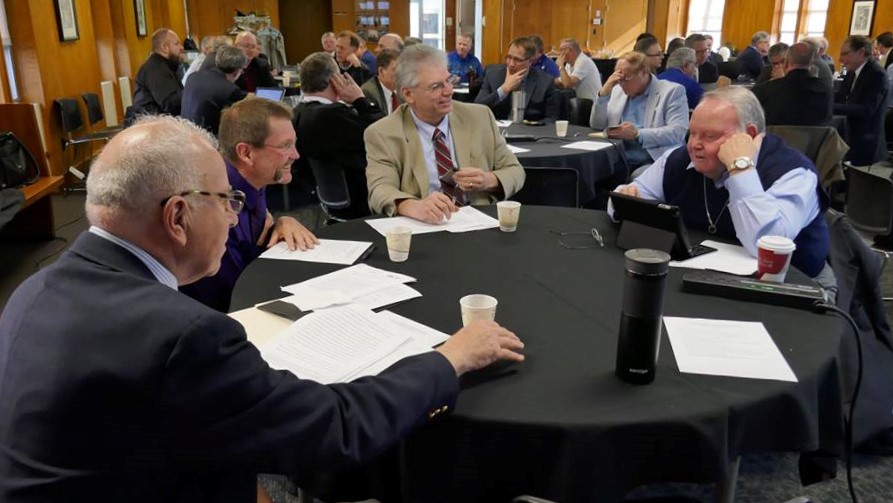

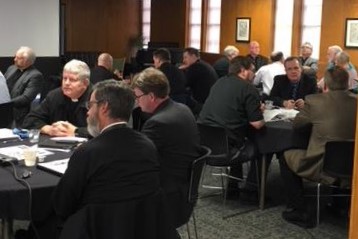
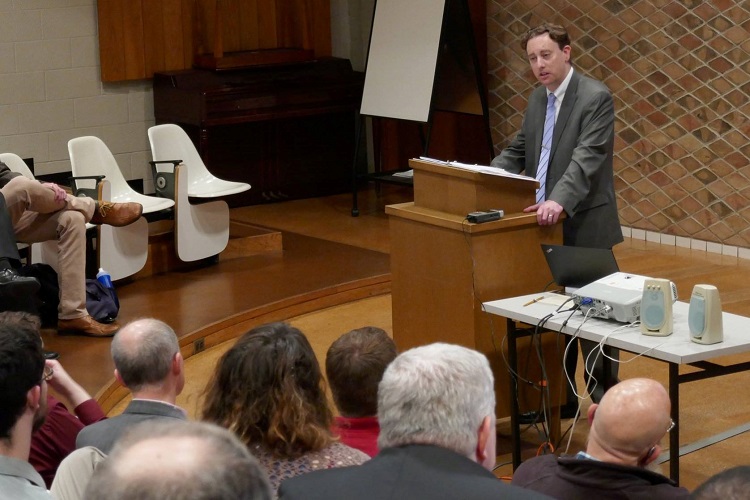
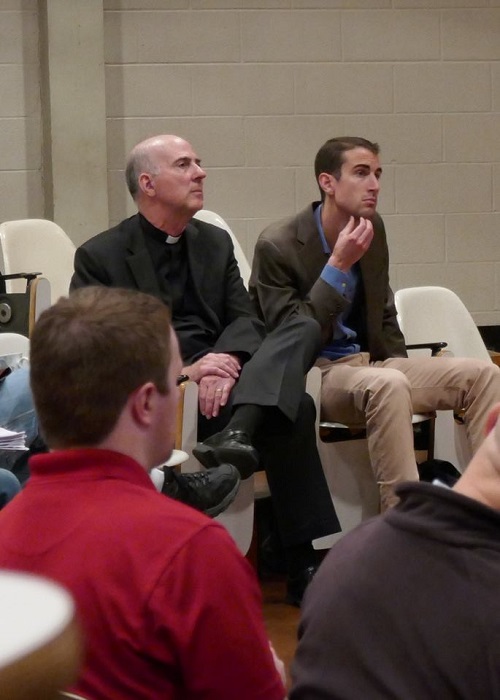
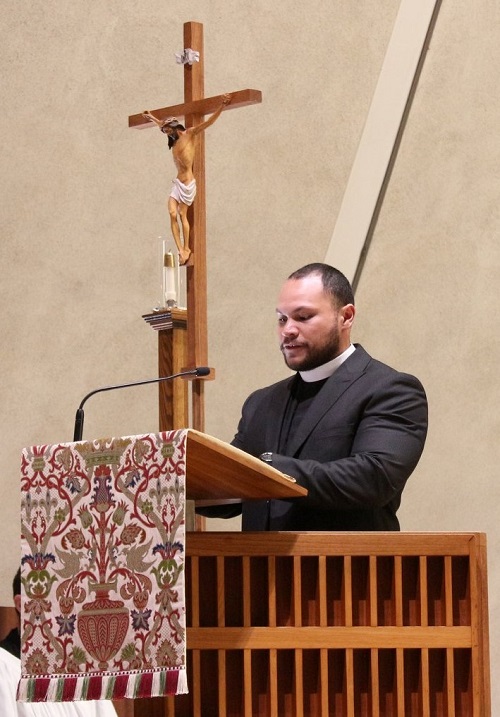
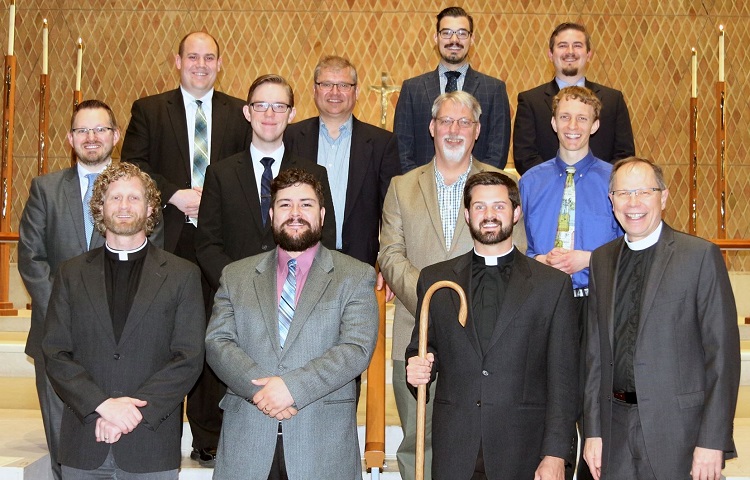
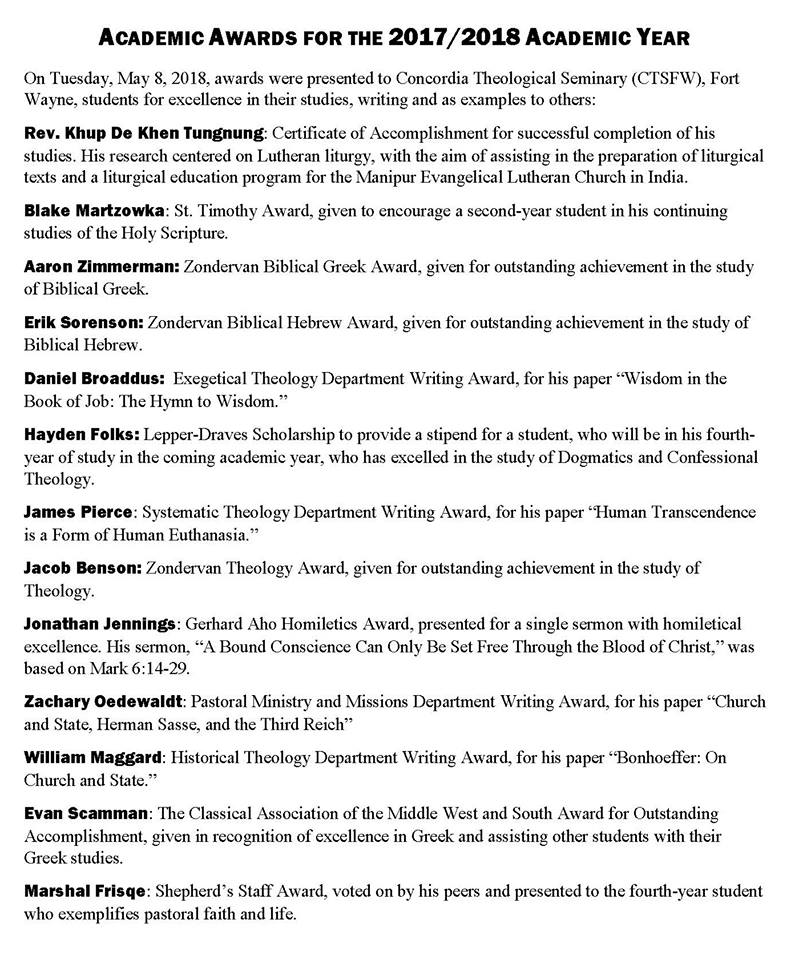
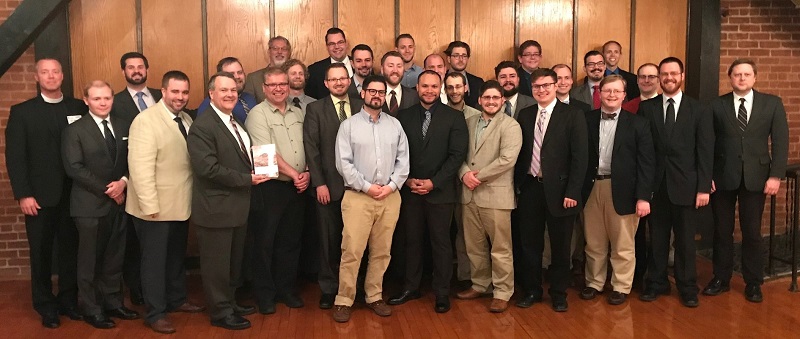
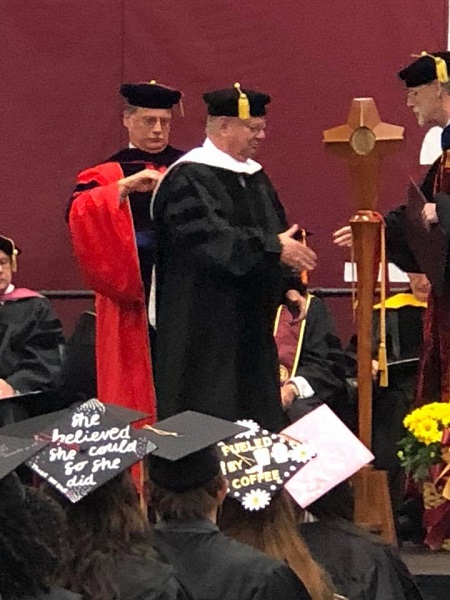
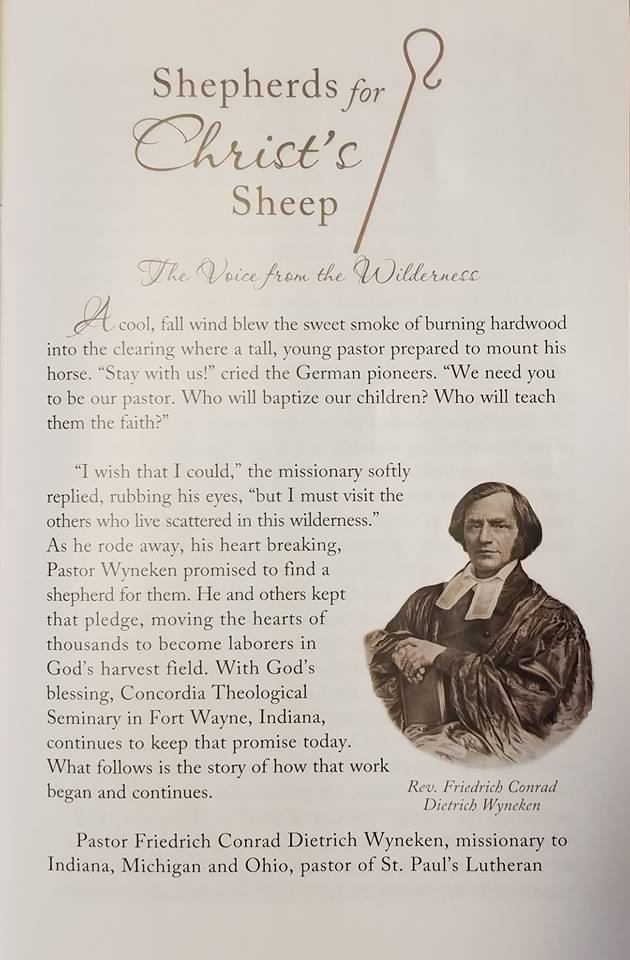
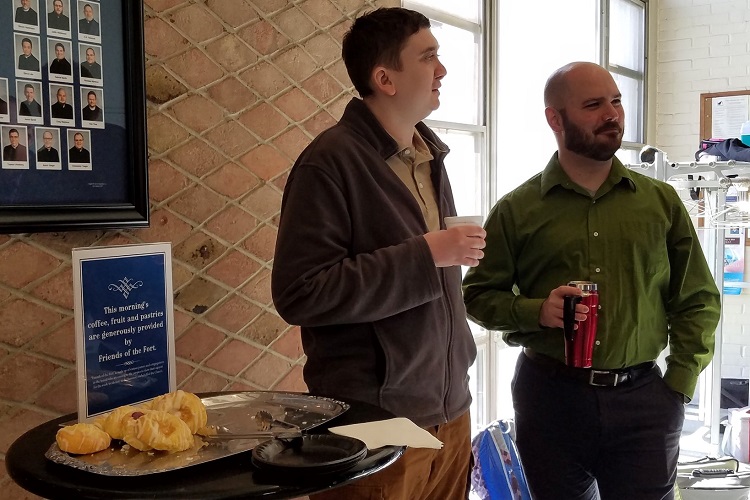 So far they have provided coffee, fruit and pas
So far they have provided coffee, fruit and pas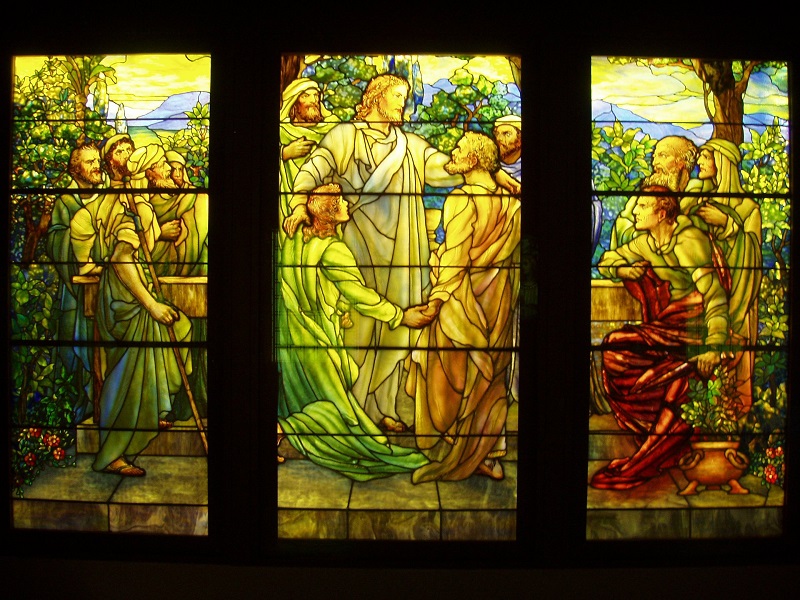
 “And Jesus went throughout all the cities and villages, teaching in their synagogues and proclaiming the gospel of the kingdom and healing every disease and every affliction. When he saw the crowds, he had compassion for them, because they were harassed and helpless, like sheep without a shepherd. Then he said to his disciples, ‘The harvest is plentiful, but the laborers are few; therefore pray earnestly to the Lord of the harvest to send out laborers into his harvest’” (Matt. 9:35-38).
“And Jesus went throughout all the cities and villages, teaching in their synagogues and proclaiming the gospel of the kingdom and healing every disease and every affliction. When he saw the crowds, he had compassion for them, because they were harassed and helpless, like sheep without a shepherd. Then he said to his disciples, ‘The harvest is plentiful, but the laborers are few; therefore pray earnestly to the Lord of the harvest to send out laborers into his harvest’” (Matt. 9:35-38).
